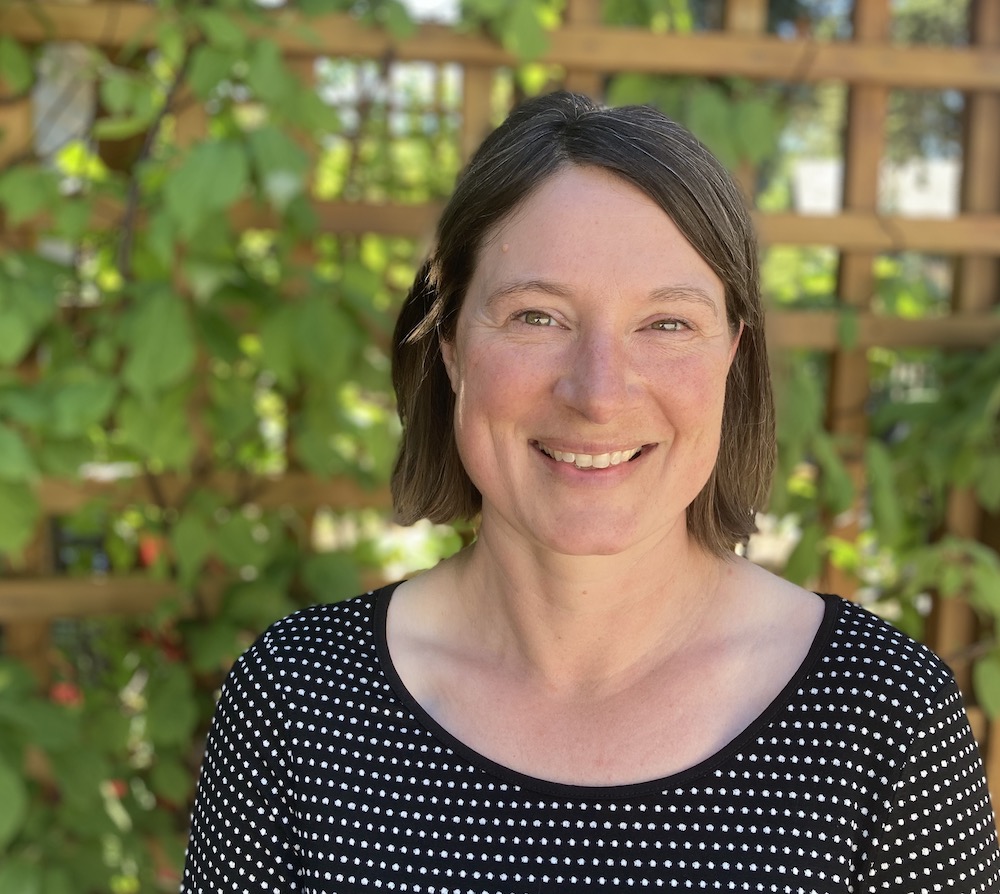Convocation Spotlight: Amanda VanSpronsen
02 June 2022

U of A Alumna Amanda VanSpronsen (‘01 BSc, ‘09 MSc) is graduating on June 7 with a doctorate in public health. We’re sharing Amanda’s reflections on her successes and the important role partnerships and relationships played in helping her reach her goals in spite of the personal challenges she sometimes faced.
What achievement, accomplishment, or moment are you most proud of from your time in the program?
I'm most proud of the partnership formed with my main research partner, the Canadian Society for Medical Laboratory Science. They brought a lot of energy and will to the work, and relied on me for figuring out the specifics and direction of the research. Our partnership resulted in an initiative called 'Lab Wisely' which is a campaign and collection of resources for working medical laboratory professionals. It was very gratifying to see how my research findings shaped the development of Lab Wisely.
What was the biggest challenge you faced?
Academically, this program pushed me in so many ways, and I'm a better writer, researcher, critical thinker, and team member as a result. However, my biggest challenge came from my personal life. I suffered the loss of my brother to suicide midway through my program, and I questioned my priorities a lot during the highest moments of grief, and almost quit many times. My supervisors and project team treated me with such compassion at every juncture, and I couldn't be happier that I decided to continue and complete the program.
What initially drew you to this area of study?
I really like how the public health approach to an issue involves asking questions to try to understand the underlying systems, rather than just focusing on individuals. Mis-utilization of healthcare resources is a significant problem, and as a member of a regulated health profession, I was curious about the roles we can play to address this issue. Taking a public health approach encouraged me to consider this question from multiple angles.
What lessons will you take from pursuing a degree during the pandemic?
A valuable part of a graduate program is the opportunity to form relationships with future colleagues, which became more challenging when in-person encounters disappeared. I've learned that it is worthwhile to expend more effort here, even if it feels hard. The skills learned by using remote communication technologies will remain important as they open up collaboration opportunities with colleagues, wherever they are located.
What comes next for you in your career/academic journey?
I have an academic position in the Division of Medical Laboratory Science at the University of Alberta, and I look forward to starting a small research program to build on the momentum generated during my PhD program. My collaboration with the Canadian Society for Medical Laboratory Science remains alive and there is opportunity to add to Lab Wisely and take it in different directions.
What advice would you give to a student thinking of entering your program of study/specialization?
I would enthusiastically recommend the School of Public Health to any interested student. The training is rigorous, and the faculty and staff are responsive and caring. I have found that it is a very forward-thinking institution that is trying to create public health professionals for the health systems of the future. In terms of advice, I would recommend cultivating a good relationship with your supervisors and peers. Your supervisors are invested in your growth and your success. Your peers will become your future colleagues, and provide valuable camaraderie during classes and thesis research. During your program, you'll likely have setbacks, and sometimes you will have to scrap large amounts of material because you took a unproductive direction, or it's no longer relevant for whatever reason. These moments will teach you how to recognize all the ways that you learn constantly, even from failure or mistakes.